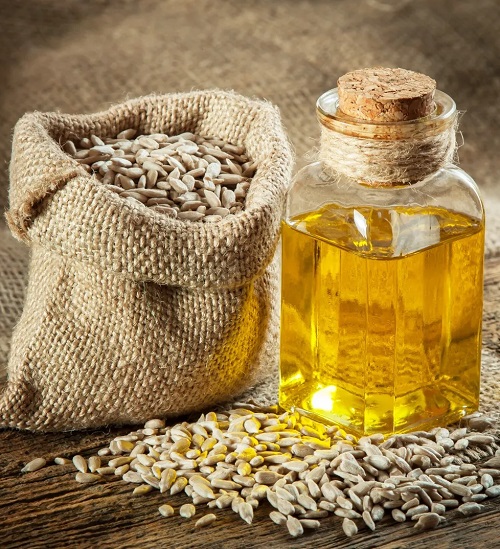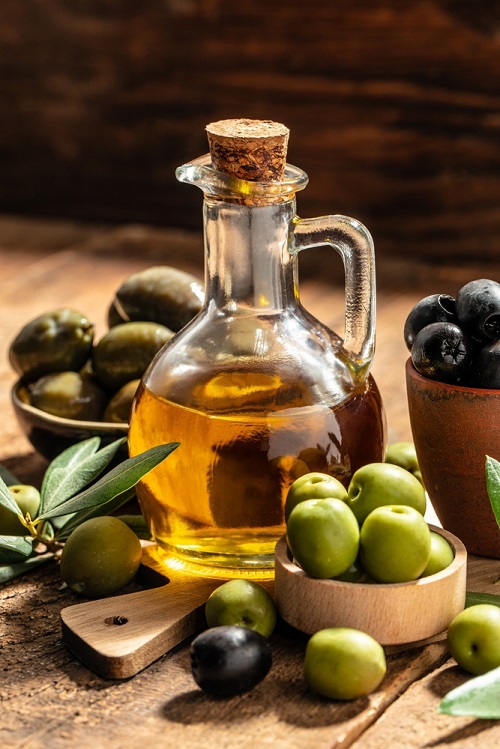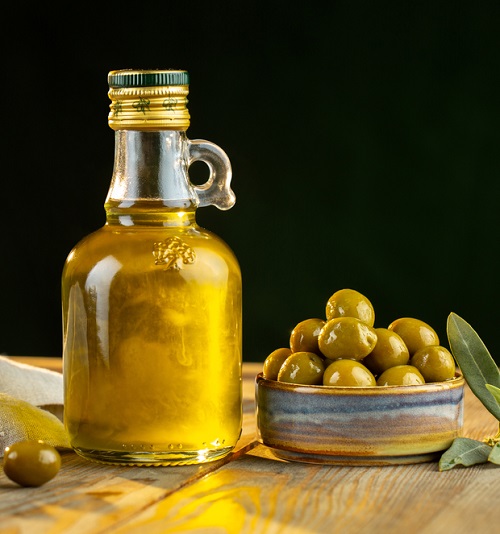Does pressing affect oil quality? Here’s everything you need to know about expeller-pressed vs. cold-pressed oils!
Comparing expeller-pressed vs. cold-pressed oils will help you pick the ideal one for your needs!
What Are Pressed Oils?

Pressed oils are extracted from seeds, nuts, or fruits solely through mechanical pressure, without the use of heat or chemical processing. This extraction method is particularly beneficial because it maintains the natural flavors, nutrients, and antioxidants found in the original source. The process itself is straightforward, involving the pressing or crushing of the seed, nut, or fruit to release the oil.
This technique of oil extraction keeps all the beneficial properties of the oil intact and ensures that the quality isn’t compromised. Pressed oils are highly valued both in skincare and cooking. In skincare, they offer a pure, potent form of hydration and nourishment, while in culinary uses, they enhance dishes with their full, natural flavors and provide health benefits associated with their unaltered fatty acid profiles and antioxidant content.
Expeller Pressed Oil Information
Expeller-pressed oils are basically oils extracted by a fancy method called expeller pressing. It’s like a giant mechanical press, squishing seeds or nuts to get the oil out.
This method doesn’t involve the use of chemicals or heat, but, yes, natural heat is evolved when machinery takes action. This heat is negligible and doesn’t affect the quality; it’s still way healthier than those oils with loads of chemicals. You’ve probably tasted them without even realizing it, like sunflower oil, canola oil, or sesame oil. So, it’s basically a more natural, healthier way to get your cooking oils.
Cold Pressed Oil Information
Cold pressed oils are basically oils extracted using a method that’s all about keeping raw seeds cool. They’re made by squishing seeds, nuts, or fruits without cranking up the heat too much – usually, it stays under around 120 degrees Fahrenheit. This way, they hold onto all the good stuff like flavors, nutrients, and antioxidants.
You’ve probably seen them on shelves as cold-pressed olive oil, avocado oil, or flaxseed oil. People love them for cooking and skincare because they’re less processed and loaded with natural goodness, unlike oils that undergo high heat or chemicals.
Expeller Pressed Vs. Cold Pressed
1. Temperature Profile
Expeller-pressed oil is extracted using mechanical pressure with temperatures that may rise due to friction, while cold-pressed oil is extracted at temperatures below 120 degrees Fahrenheit to preserve nutrients.
2. Processing Method
Expeller pressing involves mechanical pressure without the use of chemicals, whereas cold pressing also avoids chemicals and employs low temperatures to maintain nutritional integrity.
3. Nutrient Retention
Cold-pressed oil retains more nutrients, antioxidants, and natural flavors due to the gentle extraction process, compared to expeller-pressed oil, which may lose some nutrients from the higher temperatures during extraction.
4. Flavor Holding Capacity
Cold-pressed oil typically has a richer flavor and aroma because of the gentle extraction process, while expeller-pressed oil may have a milder taste.
5. Shelf Life
Cold-pressed oils tend to have a longer shelf life due to the gentle extraction process, which helps preserve their freshness and prevent oxidation, whereas expelled-pressed oils may have a shorter shelf life due to their quick oxidation.
Which One Should You Go For?
Both types of pressed oil stand out as they have their own specialties at their respective places. But, when it comes to choosing between the two, it ultimately depends on your preferred needs. If you are not keen on flavor and have a tight budget, then you should definitely go for expeller-pressed oil with a milder flavor.
On the other hand, if you prioritize retaining maximum nutrients, antioxidants, and a richer flavor profile, then cold-pressed oil is the way to go. Cold-pressed oils are also preferred for skincare due to their higher nutrient content and gentle extraction process.
Precautions To Consider
- Store both types of oils in a cool, dark place away from direct sunlight to prevent oxidation and maintain freshness.
- Avoid heating them above their respective smoke points to prevent the breakdown of nutrients and the development of harmful compounds.
- Use the oils within their recommended shelf life to ensure optimal quality and flavor.
- Be aware of potential allergies to ingredients used in the extraction process, especially for cold-pressed oils, which may include allergens from nuts or seeds.
- Conduct a patch test before applying cold-pressed oils to the skin to check for any adverse reactions, especially if you have sensitive skin.


